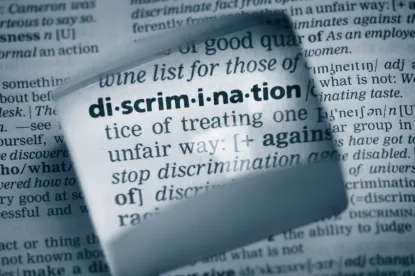On Monday, June 3, 2019, the U.S. Supreme Court issued a decision in Fort Bend County v. Davis, unanimously finding that Title VII’s administrative exhaustion requirement is not jurisdictional and that employers may forfeit the right to challenge Title VII claims on the basis of the employee’s failure to exhaust administrative remedies, if such challenges are not raised in a timely fashion.
The case arose after Fort Bend County employee Lois M. Davis filed a charge of discrimination with the U.S. Equal Employment Opportunity Commission (EEOC) claiming that her supervisor unlawfully retaliated against her for complaining about sexual harassment. While the charge was pending, the county fired Ms. Davis for failing to appear for work on a Sunday that conflicted with a church event. Ms. Davis attempted to add “religion” as a basis for her claim of discrimination on the EEOC’s intake questionnaire but neglected to amend her formal charge. After receiving a right-to-sue notice from the EEOC, Ms. Davis commenced an action in the U.S. District Court for the Southern District of Texas alleging discrimination on account of religion as well as retaliation for reporting sexual harassment. The district court granted the county’s motion for summary judgment on all of Ms. Davis’ claims, but the U.S. Court of Appeals for the Fifth Circuit reversed as to the religion-based discrimination claim.
On remand to the district court, the county asserted for the first time that the district court lacked jurisdiction over Ms. Davis’ religion-based discrimination claim because she had failed to state that claim in her EEOC charge. The District Court granted summary judgment on that basis, but the Fifth Circuit reversed, finding that the requirement to file an EEOC charge was only a prudential prerequisite to the suit that could be forfeited by the county’s failure to assert that defense in a timely way, rather than a jurisdictional requirement that could be raised at any time.
Resolving a split among the courts of appeal, the Supreme Court affirmed the Fifth Circuit’s decision and held that Title VII’s charge-filing requirement “is a processing rule, albeit a mandatory one, not a jurisdictional prescription delineating the adjudicatory authority of courts.” The Court noted that a claim-processing rule may be mandatory in the sense that a court must enforce the rule if it is raised in a timely fashion. However, unlike a prescription limiting the kinds of cases a court may adjudicate—i.e. a limitation involving a court’s subject matter jurisdiction—Title VII’s charge-filing requirement is the type of mandatory claims-processing rule that ordinarily is forfeited by the employer if the employee’s noncompliance is not timely asserted.
Prior to the Davis decision, some circuit courts had strictly limited the claims that could be brought in litigation to those listed in the charge of discrimination before the EEOC or a state or local fair employment agency, reasoning that a court’s jurisdiction was limited by the scope of the charge. Now that the Supreme Court has made clear that administrative exhaustion is not a jurisdictional requirement, it is possible that courts in those circuits will interpret charges of discrimination more broadly, potentially allowing employees to assert additional claims once they get to court.
The Davis decision serves as an important reminder for employers not to delay raising challenges to a plaintiff’s failure to exhaust administrative remedies for Title VII claims as well as other statutes that also require filing with the EEOC, such as the Americans with Disabilities Act and the Age Discrimination in Employment Act.





 />i
/>i

